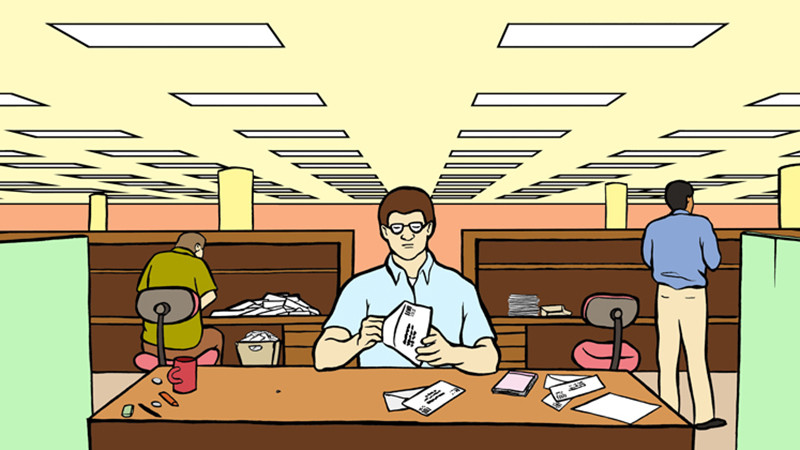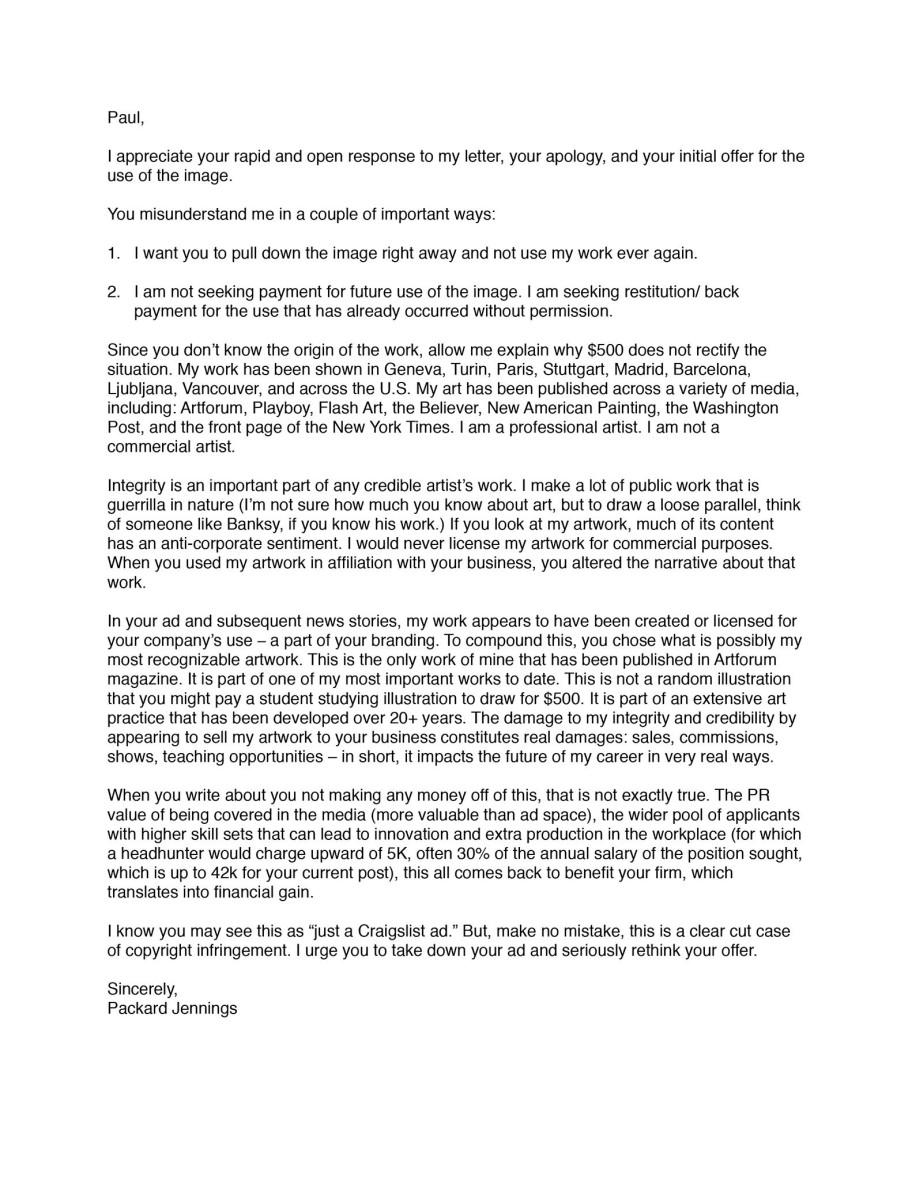Oakland artist Packard Jennings is no stranger to the press. His politically-conscious artwork has been covered by the New York Times, the Washington Post, Artforum, and many other publications. But he’s currently receiving media attention for a Craigslist post he had nothing to do with — a San Diego tech executive used an image of Jennings’ without permission for a “developers wanted” ad, which went viral. Now, instead of concentrating solely on his next work, Jennings is having to get “medieval” on Chatmeter CTO Paul Koch for the exec’s copyright infringement.
Jennings took a few minutes to answer some questions from KQED Arts about the situation and what he plans to do next.
How did you learn about your pic being used in the ad?
This Craigslist post went viral. Beyond the attention on news sites, it blew up on social media. Several people recognized my work when it was posted on both Facebook and on the San Francisco Chronicle’s site. I was contacted about it by three separate people.

How far are you willing to take this?
I’m willing take this as far as it needs to go. I’d rather it didn’t get to the point of needing to go to court, but I have been consulting several copyright lawyers and the California Lawyers for the Arts, in case it goes there. If it goes to court, it goes to court. It is a pretty cut-and-dry case of copyright infringement. They don’t have a leg to stand on, really.
What would be proper compensation?
If he comes to me with a sincere offer that seems adequate I will consider it, but that could be a question for lawyers. The standard ranges of fines for copyright infringement are laid out in my first letter.



